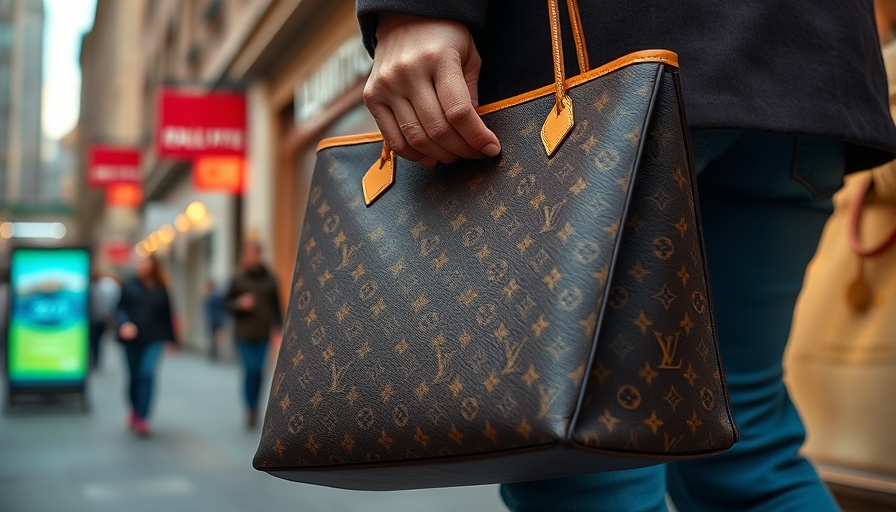
The Luxury Market Faces Unexpected Challenges
LVMH, the world's largest luxury goods conglomerate, has recently reported a significant drop in sales, signaling potential upheavals within the larger luxury industry. As one of the premier indicators of consumer confidence in premium brands, LVMH's downturn may reflect broader economic realities that could reshape consumer behavior and impact sales strategies across the sector.
Understanding the Sales Decline: A Multi-Faceted Issue
Several factors contribute to LVMH’s troubling sales figures. The ongoing economic uncertainties, including inflationary pressures and shifting consumer spending patterns, are at play. Additionally, decreased demand in key markets like Asia due to pandemic-related restrictions further exacerbates the downturn. Analysts suggest that luxury brands will need to reassess their marketing strategies to engage consumers who are now more socially conscious and financially cautious.
Consumer Behavior Trends: The New Luxury Paradigm
Today’s luxury consumers are often younger, more environmentally aware, and interested in sustainability. This shift toward conscious consumption challenges traditional luxury branding, requiring companies to pivot to meet new expectations. As documented in various reports, brands that integrate corporate social responsibility into their operations tend to resonate better with modern consumers.
Broader Implications for the Bay Area and Beyond
The downturn at LVMH has broader implications, especially for Bay Area startups and businesses in the luxury sector. The relationship between luxury markets and tech-driven innovations becomes paramount as companies harness digital platforms to attract consumers. The Bay Area’s thriving venture capital ecosystem could play a pivotal role in reimagining strategies that blend traditional luxury with modern expectations, including e-commerce integration and digital marketing.
Future Predictions: Will Luxury Brands Adapt?
The falling sales present an opportunity for luxury brands to rethink their approach and innovate within a changing landscape. Predictions indicate that while some legacy brands may struggle to adapt, newer brands entering the market could thrive by prioritizing sustainability and digital transformation. Collaborations between traditional luxury brands and tech startups in the Bay Area may catalyze a new era of luxury consumption.
Practical Insights for Luxury Businesses
For luxury businesses looking to navigate these newfound challenges, several practical strategies emerge. Focusing on customer engagement through tailored experiences, investing in transparency in supply chains, and leveraging data analytics to understand consumer preferences can position brands favorably. Companies that embrace these practices are likely to maintain their foothold, if not expand, in a competitive landscape.
A Call to Action: Rethink Your Strategies
As the luxury market recalibrates in the wake of LVMH's sales decline, businesses must adopt a proactive stance. By prioritizing sustainability, leveraging technology, and enhancing customer engagement, luxury brands can adapt and thrive in this challenging environment. Industry leaders are encouraged to embark on this journey of transformation, ensuring that they meet the expectations of today’s consumers and remain relevant.
 Add Row
Add Row  Add
Add 



Write A Comment